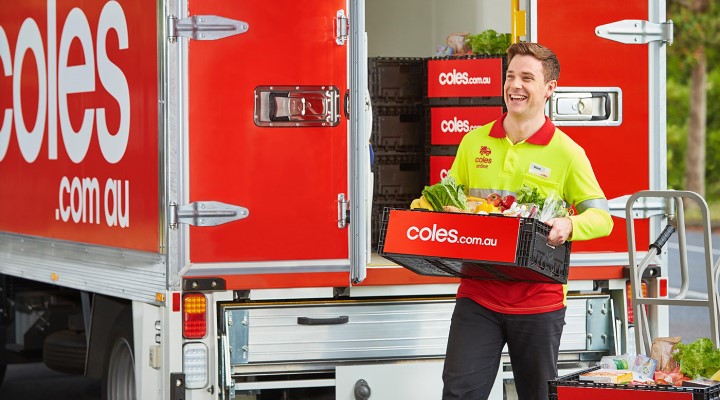In 1998, an executive of the then-Coles Myer food and liquor business discussed the acquisition of the Dan Murphy’s chain of five Victorian stores. Founded in 1952 by winemaker and journalist Daniel Murphy, the chain may only have had five stores at the time but the brand was dominant in the fragmented retail liquor industry. The Dan Murphy’s Prahran and Alphington outlets boasted the highest liquor sales in the state. Coles Myer was first to the table to discuss an acquisition but Woolworth
lworths struck a multimillion-dollar deal with Murphy that gazumped its food and liquor rival.
It is obviously impossible to say what might have happened had Coles Myer prevailed, particularly in respect of how it would have managed and developed the brand, compared with Woolworths’ approach.
But Coles had the stronger liquor offer, through its Liquorland and Vintage Cellars brands, before Woolworths acquired Dan Murphy’s. That single deal has shaped and reshaped liquor retailing ever since and has left Coles struggling across three ownership entities to find a formula to match the one that got away.
The struggle to keep pace
Coles attempted to counter the Woolworths Dan Murphy’s coup by rolling out a large-format category killer liquor store branded Quaffers.
But an aggressive rollout of Quaffers never eventuated; Coles switched the branding to First Choice but the liquor channel continued to struggle.
Ongoing problems and under-performance in the liquor division were a key factor in the sudden departure of Steven Cain from Coles in 2004, just 14 months after he was recruited from the UK to lead the food and liquor business. But Cain is now back at the helm of Coles Group, following the demerger from Wesfarmers, and has been very successful the second time round ‒ in food.
Liquor remains more problematic, as Coles continues to try to improve sales and market share after numerous reviews, the latest of which was completed in August 2020.
Coles is no minnow in liquor retailing, with more than 920 stores across its First choice, Liquorland, and Vintage Cellars brands, and annual sales of more than $3.5 billion.
It is not possible to assess the 2020 strategy because Covid-19 flattered sales, lifting revenue by 6.5 per cent in FY21 and 13.6 per cent for FY20 and FY21 combined.
For the first half of the latest financial year, sales growth was a more subdued 2.7 per cent, with the most recent third-quarter results slightly better, at 2.8 per cent.
Coles has certainly increased its investment in store upgrades, while also supporting substantial growth in e-commerce liquor sales.
Online liquor sales were up 60 per cent in FY21, exclusive of transactions through Coles.com.au, which were included in supermarket channel revenues.
Post-Covid online sales momentum was maintained in the third quarter, with e-commerce revenue growth above 50 per cent.
Coles Group claims its strategy execution is continuing, with a focus on simplifying the operating model, differentiating its offer, and developing growth opportunities.
Endeavour Group emerges, dominates
Coles Group is now competing for the liquor market with Dan Murphy’s owner Endeavour Group, which was created by a demerger from Woolworths.
The Dan Murphy’s chain today has 258 stores, with an active membership in loyalty programs of 4 million.
Endeavour Group includes a hotels division but its retail brands – Dan Murphy’s and BWS – generate annual revenues of more than $10 billion, virtually three times the sales of Coles Group’s liquor businesses.
Endeavour Group’s earnings before interest and tax for FY21 were $669 million, compared with Coles’ $165 million.
In its first six months trading as an independent business following the demerger, Endeavour Group has maintained its momentum. Sales for the first half of FY22 for the retail chains were $5.7 billion, just 0.6 per cent below the comparable period in the previous financial year. Two-year headline sales growth for Endeavour Group was 18.4 per cent, compared with Coles’ two-year liquor revenue growth of 13.6 per cent.
Having expanded its network by 24 outlets, Endeavour Group has also outpaced Coles Group in the latest financial year in terms of new store openings and upgrades.
The outlook
Woolworths striking a deal for the five-store chain was an industry game changer and the question now is whether or not the focus of a Endeavour Group on liquor and gaming can continue to overwhelm Coles Group’s food and liquor combination business.
Endeavour Group currently has a large advantage in customer memberships and there is certainly much greater brand value in the Dan Murphy’s brand than in Coles Group’s First Choice.
However, if Cain improves the performance of the liquor division, there is a lot of upside for Coles Group and perhaps a chance to put to bed the regret of an opportunity lost to a competitor 24 years ago.

